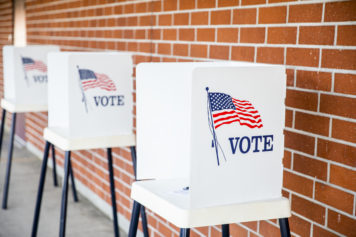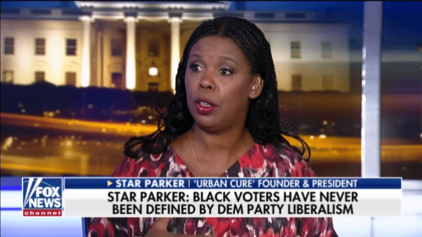When members of the Congressional Black Caucus gather in Washington, D.C., on Wednesday with hundreds of black clergy, the topic will be voting rights and how to ensure that black voters are represented at the polls in November at the same rate or even greater numbers than in 2008.
The black clergy and members of Congress are concerned about all the changes that have been enacted across the country in Republican-controlled state legislatures that they believe are intended to make it more difficult for people of color to register and to vote. Since the black church has historically had such a crucial roll in registering black voters and making sure they get to the polls, the Congressional Black Caucus decided to join with the Conference of National Black Churches to hold an educational summit, bringing in lawyers and experts to apprise the clergy of everything they need to be aware of as they work with their congregations.
“We will have attorneys there who are well-equipped to provide the guidance to the clergy members,” said Rep. Emanuel Cleaver, D-Mo., the Congressional Black Caucus chair and a United Methodist pastor. “They will understand, before they leave, about some of the new laws in certain states designed – as we interpret them – to reduce the turnout. The day is over when they could just stand in the pulpit and say ‘Go vote. It’s your duty.’ They’ve got to now be equipped with some sophisticated information to help inspire a turnout and protect parishioners from some of the schemes that are out there.”
According to a story on kansascity.com, at least 15 states have passed laws that could make voting more difficult for blacks and up to 38 states are weighing legislation that would require people to show government-approved photo identification or provide proof of citizenship before registering or casting ballots. Laws have also enacted or are being considered that would make it harder for third-party groups such as the League of Women Voters and the NAACP to register voters.
New York University’s Brennan Center for Justice released a study last year that said the new laws “may sharply tilt the political terrain for the 2012 election” by restricting voting access for up to 5 million people, mostly people of color, the poor and the elderly.
States that have adopted such laws account for 171 electoral votes this year, 63 percent of the 270 electoral votes needed to win the presidency, according to the Brennan Center.
Ironically, if a foreign country tried to initiate a slew of laws to restrict voting, the U.S. would be the first nation to cry foul and call for intervention by the United Nations.

